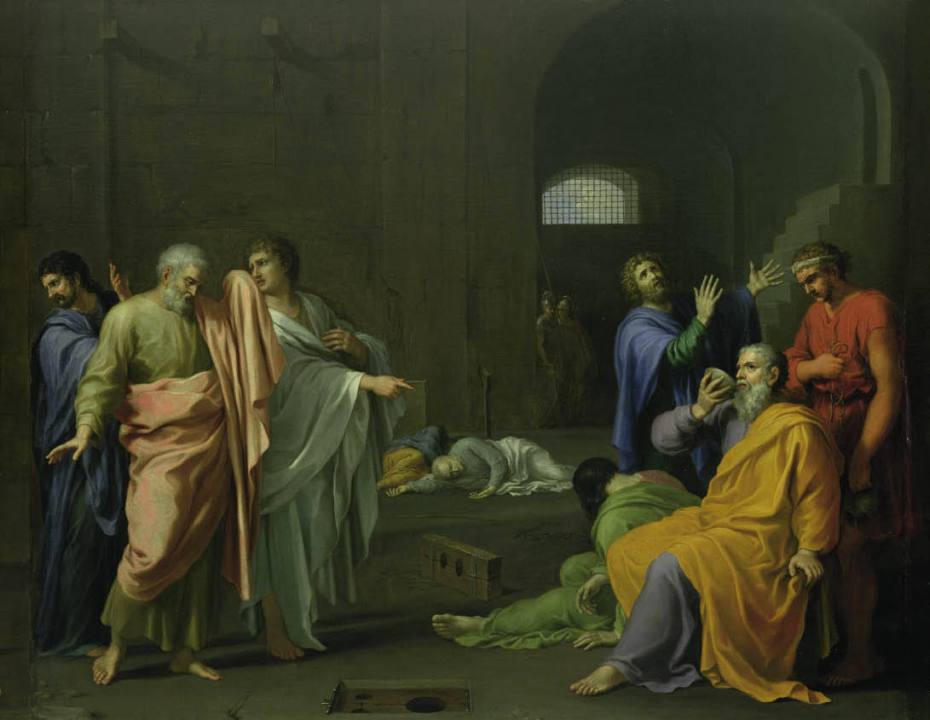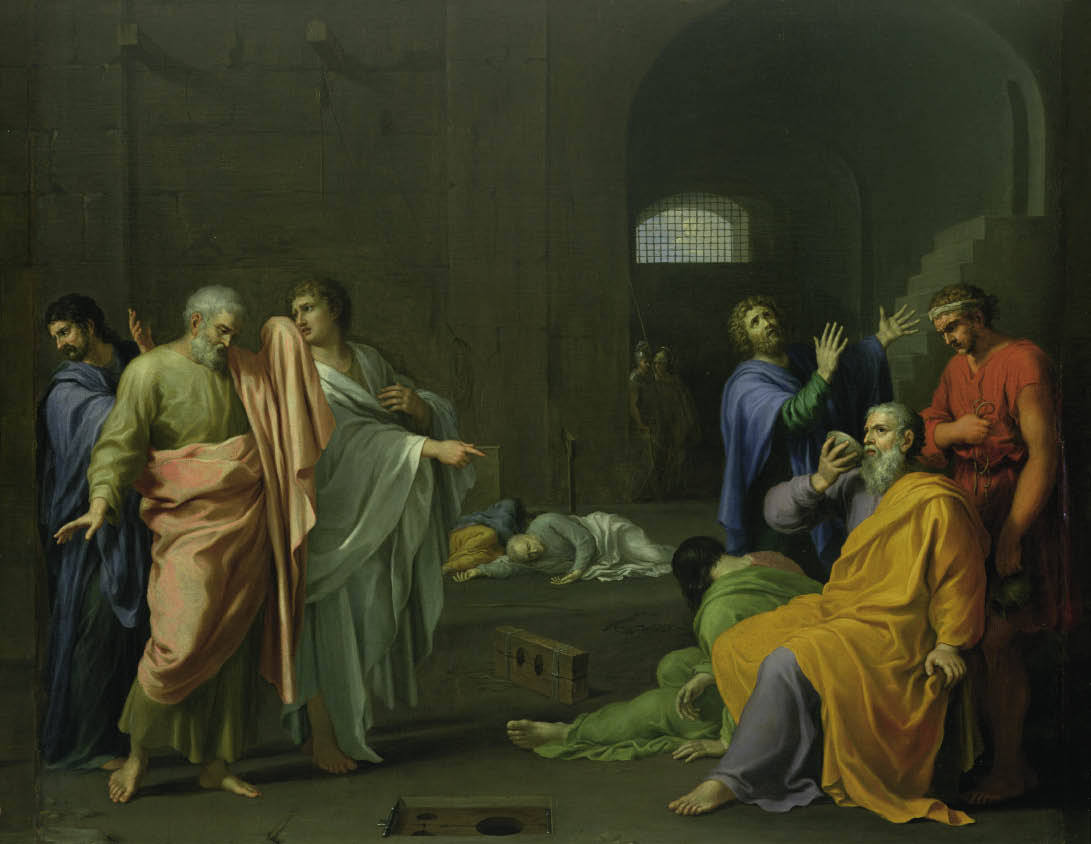Bettany Hughes is the Nigella Lawson of the classical world — all tumbling raven curls and smoky-voiced seduction, as she takes telly viewers through the greatest hits of the olden days; recent programmes have covered the Spartans, Athens and the Bible.
Bettany Hughes is the Nigella Lawson of the classical world — all tumbling raven curls and smoky-voiced seduction, as she takes telly viewers through the greatest hits of the olden days; recent programmes have covered the Spartans, Athens and the Bible. She’s just been on Radio 4 talking about Britain under the Romans. She’s no slouch on the academic side, either: a scholar at Oxford and a research fellow at King’s College, London, she got rave reviews for her first book on Helen of Troy.
And she’s certainly done her scholarly homework on her latest greatest hit —Socrates — taking in the primary texts in the original language, and a good chunk of the secondary ones. It’s a clever enough idea, too: explain fifth-century Athens, the principal city of ancient Greece, in its golden age, through the life of the philosopher; in particular, through his 399 BC trial for insulting the gods and corrupting the young, and his suicide with a cup of hemlock.
Socrates, born in around 469 BC, witnessed or took part in many of the events that lodged Greek civilisation in the western mind as the bedrock of democracy, architecture and tragic and comic drama. He grew up as Pericles came to power, as the Parthenon was constructed, and as the first Peloponnesian War began. Unlike most modern philosophers, Socrates got out of his garret quite a bit, serving in the Athenian siege of Potidea in 432 BC and at the battle of Amphipolis in 422 BC. And, all through his lifetime, there was a steady stream of plays from the great playwrights — Aeschylus, Sophocles, Euripides and Aristophanes. Socrates’s philosophy — as recorded by Plato — reached such a pitch of fame that he even appears, as a ludicrous figure of fun, in Aristophanes’s The Clouds.
This wasn’t just the usual teasing that — still, now, particularly in Britain — we give our public intellectuals. There was something dangerous about the way Socrates put the search for truth above the desire to stay in with the powers that were; and so he was sentenced to death.
Bettany Hughes covers all this ground perfectly adequately — although I could have done with a bit more philosophy; a few little gobbets aside, there aren’t enough of the thoughts that make him interesting in the first place. She’s assiduous, too, in going to visit all the relevant places today — more often than not the sylvan groves of philosophy are now truck stops, tavernas and flea markets.
So this would make a perfectly good primer for ancient history and philosophy undergraduates, and for those with an interest in the Greeks; but for the writing. For someone who makes most of her living from broadcasting, it’s surprising that Hughes has what Russell Crowe unfairly accused Mark Lawson of having: ‘dead ears’.
Hughes is forever trying to hit an epic, classical tone by using misplaced poetic language, in expressions such as ‘Delos will sound loud in Socrates’ story.’ Instead of sounding like Thucydides, she ends up more like Alan Partridge doing a Radio Norfolk roadshow from the Parthenon. She uses the awkward grandiloquent word over the familiar one: ‘ire’ instead of anger, ‘physick’ instead of cure, ‘inked’ instead of written. She’s fond of creating compound verbs that fall flat: ‘The splendid temple of Poseidon still basilisk-eyes the boats that come in and out of Athens’ harbours’; ‘Athens was mother-henning it across the eastern Mediterranean.’
And sometimes she’s just plain illiterate: ‘Illuminating the buildings came genius’; ‘18th-century watercolours show Grand Tour eagers bowing their heads at the place as if in prayer.’
A good idea, painfully executed.







Comments